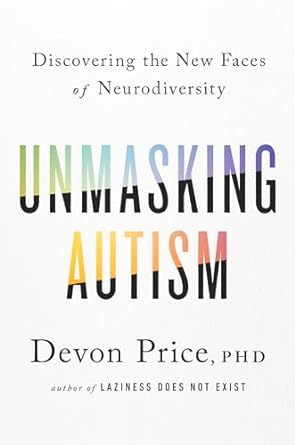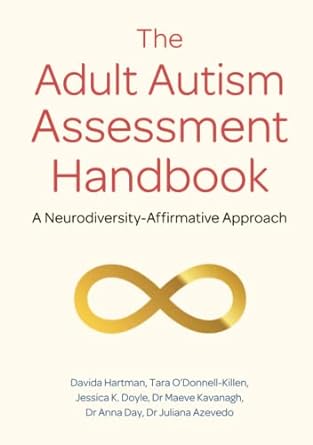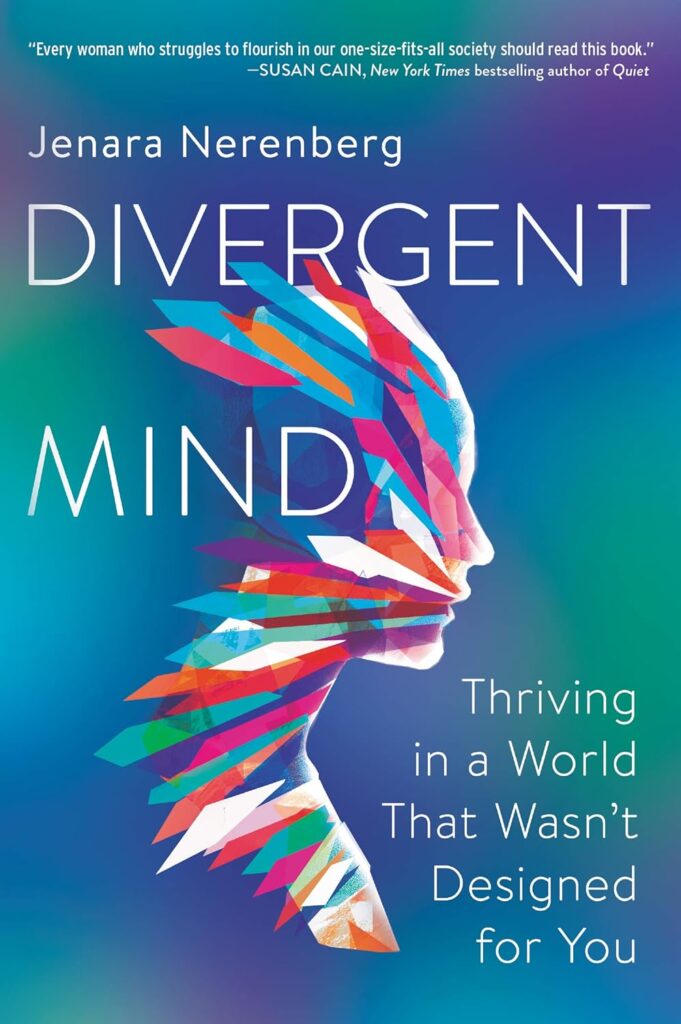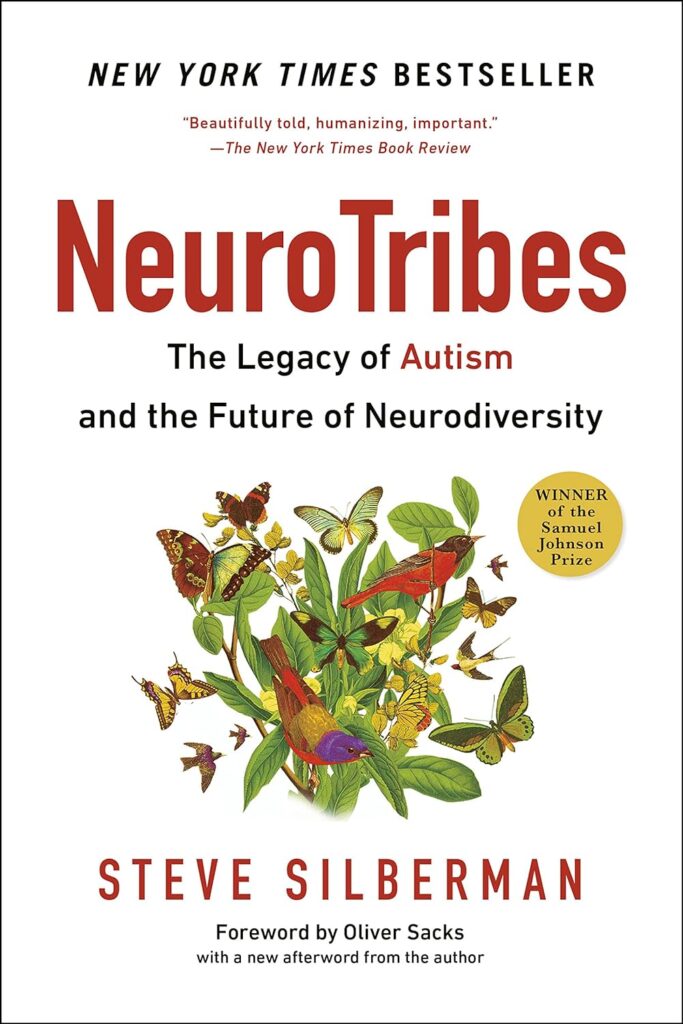If no openings are available when you click the Request Appointment button, Dr. Staley may have a waiting list for services. You can request to be added to his waiting list and share more about the type of support or services you’re seeking by clicking the Contact button below. Please include your general availability (days and times including time zone), and Dr. Staley will reach out when an opening becomes available that fits your schedule.
Autism Assessment
A Neurodiversity-affirming approach

Dr. Cameron Staley is now offering assessments for adults (18+) seeking a formal evaluation for an Autism Spectrum Disorder diagnosis!
Have you ever wondered if you’re autistic?
Our understanding of Autism has increased tremendously in recent years. Autism is now best understood as an expression of neurodiversity that is beneficial to individuals and society rather than being pathological. Autism is a neurotype that doesn’t require fixing or changing but may require understanding and accommodation. Often the environment is disabling for many autistic individuals who experience being chronically misunderstood, having communication preferences ignored, sensory perception invalidated, and meaningful perspectives discounted.
Although awareness of Autism has increased, accurate understanding of Autistic experiences remains limited. Outdated criteria for Autism Spectrum Disorder contribute to this problem by focusing on ways Autistic individuals do not meet “neurotypical” or non-Autistic expectations for social interactions, engagement in interests, or preference for routines. In an effort to compensate, many Autistic individuals learn to mask or camouflage their natural ways of being in order to be accepted, avoid harassment, or to function in unsupportive environments. Often women go undiagnosed until later in life given inaccurate perceptions of autistic experiences and their ability to mask autistic traits. As a result, many Autistic individuals struggle to develop a unified sense of identity or understand who they are as Autistic characteristics are misunderstood, ignored, dismissed, or inaccurately classified as other mental health concerns.
The comprehensive Autism assessment for adults (18+) is designed for individuals seeking a formal evaluation for an Autism Spectrum Disorder diagnosis. This assessment is not a full neuropsychological evaluation and will not provide diagnostic information about other conditions such as learning disorders or traumatic brain injury. If you are needing a comprehensive assessment for government agencies or academic settings to receive accommodations or services, it may be better for you to seek a formal neuropsychological evaluation.
What should I know about autism?
- Prevalence of autism is 1 in 31 in the United States (CDC, 2025)
- The majority of autistic individuals are adults who are undiagnosed without any intellectual impairment (Berney, 2020)
- 70-80% of Autistic individuals have mental health concerns (Lever et al., 2016)
- 19 to 29% of individuals seeking mental health counseling are either Autistic or have Autistic features (Nyrenius et al. 2022).
- 2.5 times more likely diagnosed with anxiety disorder (Sweden et al., 2020)
- 15-35% of Autistic people are LGBT (Pecora, et al., 2016)
- 36% identified as asexual (Bush, et al., 2021)
- 72% experienced interpersonal trauma (Reuben et al., 2021)
- 66% of Autistic individuals contemplate suicide (Camm-Crosbie et al., 2019)
- Parents often identify as Autistic through the process of their child being identified as Autistic
Does autism look different in women?
- May present more as ‘people pleasing’
- Often considered by others to be shy, sensitive, empathic, or creative
- May connects less with traditional gender roles
- May struggle with choosing to have children due to physical, sensory, or social considerations
- Increased prevalence of eating disorders due to difficulties around body changes associated with development and aging
- Up to 52.5% of individuals with Anorexia are also Autistic (Kerr-Gaffney et al., 2020)
- Menopause may contribute to seeking understanding of Autistic identity
- Higher rates of trauma and abuse among Autistic women contribute to fear of ‘abandonment’
- Autistic women are often misdiagnosed with Borderline Personality Disorder
How can I learn if I’m Autistic?
For many, a formal neuropsychological evaluation is unnecessary in helping them determine whether or not they are Autistic. Many individuals have wondered if they are Autistic but struggle to find knowledgeable, neuro-affirming, and affordable assessment options. Some Autistic individuals may not be experiencing mental health challenges but may want to simply better understand themselves. Most benefit from a therapeutic exploration of their identity that can be accomplished in 2 to 3 meetings which focus on:
- Exploring your neurodivergence
- Making sense of your inner experiences
- Clarifying your true sense of identity
- Understanding how you relate to others
- Reframing past negative beliefs about yourself
- Identifying Autistic strengths
- Reviewing, describing, and reflecting on how your experience may align with Autistic experience
What can I expect during the evaluation process?
Step 1 – Complete Assessment Questionnaires
- Share information about your developmental history, interests, how you relate to others, your experience of body movements or vocalizations that may be calming or energizing, needs in relation to routines or managing change, sensory experiences, strengths, and medical/mental health history
- Complete standardized questionnaires designed to assess for Autistic traits and experiences.
Step 2 – Meet with Dr. Cameron Staley
- One to two appointments for you to share more about your experiences, strengths, needs, preferences, and challenges which will guide our discussion about how your experiences may align with Autistic experiences. You will have opportunities to clarify, expand, or modify your responses from the questionnaires when we meet to provide greater insight into your experiences as we explore your identity.
- The majority of each appointment will consist of you sharing your experiences. Dr. Staley will ask you follow-up questions as needed and share his thoughts and insights with you throughout the process. The meetings will feel more like a guided conversation than an evaluation with the goal of increasing your comfort leading to more openness and authenticity to facilitate the accuracy of identifying autism.
Step 3 – Report Write-up
Dr. Cameron Staley will then write up your detailed report which provides a summary of the background information you shared in the questionnaires and interview, results regarding Autism Spectrum Disorder diagnosis, and recommendations for next steps.
Report is completed typically within 1 to 2 weeks.
Step 4 – Feedback Appointment
Once the report is complete, you will be invited to schedule a feedback session with Dr. Cameron Staley where you will be given the opportunity to review and make corrections to the report as needed, discuss the findings and recommendations, and ask questions you may have regarding the process or next steps.
The entire assessment process, from initial interview to feedback session, typically takes between 3 and 4 weeks.
What are the benefits of learning whether or not I’m Autistic?
Much of the distress we experience in life arises from not understanding our experiences, identity, and where we fit in the world. Learning you are Autistic can help you access specialized therapeutic support designed for neurodivergent individuals, help you to make sense of your experiences, and connect you with other neurodivergent individuals and communities that you can better relate to and receive support from. We hope you will find this process empowering, validating, and helpful in increasing your self-understanding, creating a deeper sense of identity, and providing a greater understanding of your needs!
Am I eligible for an Autism evaluation?
Dr. Cameron Staley is a licensed psychologist in the states of Utah and Idaho and a member of PSYPACT which authorizes him to provide online counseling and psychological services to individuals across the United States living in the following states:
Alabama, Arizona, Arkansas, Colorado, Connecticut, Delaware, District of Columbia – DC, Florida, Georgia, Idaho, Illinois, Indiana, Kansas, Kentucky, Maine, Maryland, Michigan, Minnesota, Mississippi, Missouri, Montana, Nebraska, Nevada, New Hampshire, New Jersey, North Carolina, North Dakota, Ohio, Oklahoma, Pennsylvania, Rhode Island, South Carolina, South Dakota, Tennessee, Texas, Utah, Vermont, Virginia, Washington, West Virginia, Wisconsin, Wyoming
In order to engage in counseling services or psychological assessment with Dr. Cameron Staley, you must be located in one of the above participating states during the time of your appointment. To learn more about which states participate in the compact you can view a map on the following link: https://psypact.org/page/psypactmap
Rate
One payment of $1,200 due at time of first appointment.
The following are some of Dr. Staley’s favorite resources for Autistic individuals.
- Embrace Autism – Developed by Autistic therapist Dr. Natalie Engelbrecht includes empirically validated questionnaires that you can take online to further explore neurodivergent traits.
- Divergent Conversations podcast – This podcast hosted by Autistic therapists Dr. Megan Neff and Patrick Casale shares personal experiences and professional insight on neurodivergent experiences.
- Neurodivergent Insights – Developed by Dr. Neff includes great resources and information on Autistic experiences and related mental health concerns.
- Autistic Self Advocacy Network – This nonprofit organization run by Autistic individuals advocates for rights for the Autistic community.
- Mom on the Spectrum – Taylor Heaton shares helpful insights and resources on her YouTube channel regarding a variety of topics including Autistic female experiences.
- Autism Late Diagnosis/Self-Identification Support and Education Facebook group – Helpful resource to connect with other adults exploring their Autistic identity and providing peer support.
- Neurodivergent Adulting Facebook group – Helpful support group to learn from peers regarding ways to navigate challenges related to Autistic experiences.
Recommended Books




References
Berney, T. (2020) The Psychiatric Management of Autism in Adults. CR228, College Report, July. London: Royal College of Psychiatrists.
Bush, H. H., Williams, L. W., & Mendes, E. (2021). Brief Report: Asexuality and Young Women on the Autism Spectrum. Journal of autism and developmental disorders, 51(2), 725–733. https://doi.org/10.1007/s10803-020-04565-6
Camm-Crosbie, L., Bradley, L., Shaw, R., Baron-Cohen, S. and Cassidy, S. (2019) ‘People like me don’t get support’: Autistic adults’ experiences of support and treatment for mental health difficulties, self-injury and suicidality. Autism 23(6), 1431-1441.
Kerr-Gaffney, J., Halls, D., Harrison, A. and Tchanturia, K. (2020). Exploring relationships between autism spectrum disorder symptoms and eating disorder symptoms in adults with anorexia nervosa: A network approach. Frontiers in Psychiatry 11, 401.
Lever, A. G. and Geurts, H. M. (2016) Psychiatric co-occurring symptoms and disorders in young, middle-aged, and older adults with autism spectrum disorder. Journal of Autism and Developmental Disorders 46(6), 1916-1930.
Nimmo-Smith, V., Heuvelman, H., Dalman, C., Lundberg, M., Idring, S., Carpenter, P., Magnusson, C., & Rai, D. (2020). Anxiety Disorders in Adults with Autism Spectrum Disorder: A Population-Based Study. Journal of autism and developmental disorders, 50(1), 308–318.
Nyrenius, J., Eberhard, J., Ghaziuddin, M., Gillberg, C. and Billstedt. E. (2022). Prevalence of Autism Spectrum Disorders in adult outpatient psychiatry. Journal of Autism and Developmental Disorders, 6 January.
Pecora, L. A., Mesibov, G. B. and Stokes, M. A. (2016). Sexuality in high-functioning autism: A systematic review and meta-analysis. Journal of Autism and Developmental Disorders 46(11), 3319-3556.
Berney, T. (2020) The Psychiatric Management of Autism in Adults. CR228, College Report, July. London: Royal College of Psychiatrists.
Bush, H. H., Williams, L. W., & Mendes, E. (2021). Brief Report: Asexuality and Young Women on the Autism Spectrum. Journal of autism and developmental disorders, 51(2), 725–733. https://doi.org/10.1007/s10803-020-04565-6
Camm-Crosbie, L., Bradley, L., Shaw, R., Baron-Cohen, S. and Cassidy, S. (2019) ‘People like me don’t get support’: Autistic adults’ experiences of support and treatment for mental health difficulties, self-injury and suicidality. Autism 23(6), 1431-1441.
Kerr-Gaffney, J., Halls, D., Harrison, A. and Tchanturia, K. (2020). Exploring relationships between autism spectrum disorder symptoms and eating disorder symptoms in adults with anorexia nervosa: A network approach. Frontiers in Psychiatry 11, 401.
Lever, A. G. and Geurts, H. M. (2016) Psychiatric co-occurring symptoms and disorders in young, middle-aged, and older adults with autism spectrum disorder. Journal of Autism and Developmental Disorders 46(6), 1916-1930.
Nimmo-Smith, V., Heuvelman, H., Dalman, C., Lundberg, M., Idring, S., Carpenter, P., Magnusson, C., & Rai, D. (2020). Anxiety Disorders in Adults with Autism Spectrum Disorder: A Population-Based Study. Journal of autism and developmental disorders, 50(1), 308–318.
Nyrenius, J., Eberhard, J., Ghaziuddin, M., Gillberg, C. and Billstedt. E. (2022). Prevalence of Autism Spectrum Disorders in adult outpatient psychiatry. Journal of Autism and Developmental Disorders, 6 January.
Pecora, L. A., Mesibov, G. B. and Stokes, M. A. (2016). Sexuality in high-functioning autism: A systematic review and meta-analysis. Journal of Autism and Developmental Disorders 46(11), 3319-3556.
Reuben, K. E., Stanzione, C. M. and Singleton, J. L. (2021) Interpersonal trauma and posttraumatic stress in autistic adults. Autism in Adulthood 3(3), 247-256.
